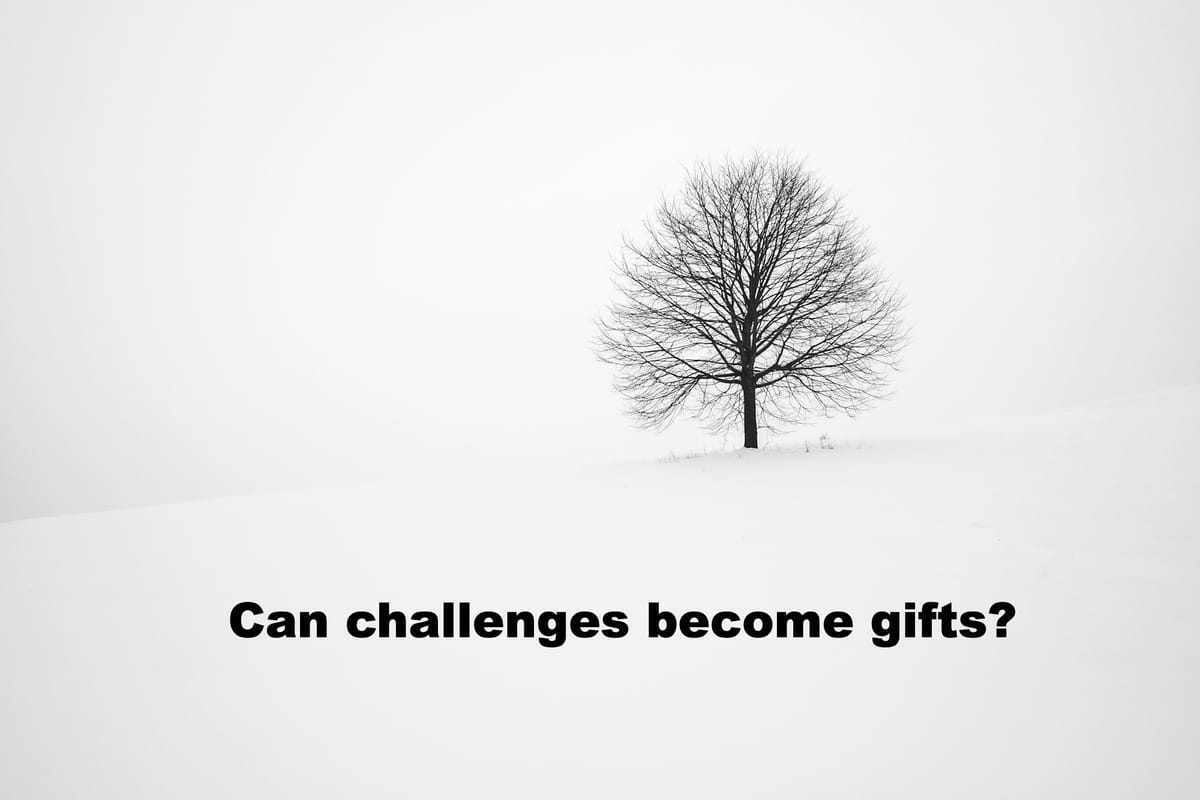Winter's Wisdom: How Teachers Can Transform Challenges into Growth Opportunities
Discover practical strategies for teachers to reflect on challenges, build resilience, and create effective support systems. Learn how to turn teaching obstacles into professional growth opportunities through structured reflection and actionable planning.

Winter's Wisdom: How Teachers Can Transform Challenges into Growth Opportunities
Become a Why Edify SupporterWelcome back to our winter reflection series! Today, we're diving into something every teacher faces, but few of us take time to process our challenges and how they shape us. While it might feel more comfortable to focus only on successes, our difficulties often contain the most valuable lessons for growth.
The Gift in the Struggle
Teaching is beautiful but demanding. This year, like every year, brought its unique set of challenges. Whether adapting to new technology, supporting struggling students, or maintaining a work-life balance, each obstacle has something to teach us.
Struggles in teaching can become valuable gifts because they serve as powerful catalysts for growth and development. When we face challenges in adapting to new technology, supporting students with diverse needs, or maintaining work-life balance, each difficulty presents an opportunity to expand our capabilities and understanding. These struggles strengthen us in multiple ways: they force us to develop resilience and creative problem-solving skills, as evidenced by how teachers have adapted to handle digital distractions and found new ways to engage students. Challenges also expand our teaching toolkit, pushing us to implement differentiated instruction strategies and develop flexible learning approaches. Perhaps most importantly, these difficulties help us build stronger support networks by connecting us with mentors, colleagues, and communities who can provide guidance and share their wisdom. In the end, it's important to remember that these challenges don't define us as educators - it's our response to them that shapes our professional growth.
Reflection Without Judgment
During this break, I encourage you to examine your challenges with curiosity rather than criticism. Think of yourself as a scientist analyzing data - objective, interested, and free from self-judgment.
Your Challenge Inventory
Take out your journal and try these reflection exercises:
- List Your Top Three Challenges
- Write down the specific situation and how it made you feel - this helps identify emotional triggers and patterns in your teaching experience.
- Note what strategies you tried, both successful and unsuccessful - analyzing your approaches reveals what works and what needs adjustment.
- Identify what you learned about yourself as an educator - self-awareness builds professional growth and helps prevent similar challenges in the future.
- Celebrate Your Responses
- How did you show resilience?
- What creative solutions did you develop?
- Who or what helped you through difficult moments?
Mining for Growth Opportunities
Now, let's transform these challenges into professional development opportunities:
- For each challenge, identify:
- One skill you could develop to handle similar situations better - this helps target specific areas for improvement rather than feeling overwhelmed by the entire challenge.
- A resource or expert who could provide guidance - connecting with experienced mentors saves time by learning from their proven solutions rather than trial and error.
- A specific strategy to try when you return to school - having a concrete plan ready ensures you'll take action instead of falling back into old patterns.
Building Your Support Network
Teaching doesn't have to be a solo journey. Use this break to:
- Map your current support system
- List colleagues who offer emotional support - these are the people who understand the daily ups and downs of teaching and can provide a listening ear when needed.
- Identify mentors who provide professional guidance - experienced educators who can share wisdom, strategies, and perspectives when facing teaching challenges.
- Note which online communities have been helpful - virtual spaces where you can find resources, share experiences, and connect with educators facing similar situations.
Creating Your Challenge Response Plan
Before break ends, develop a simple system for handling future challenges:
- Design a "First Response" toolkit
- Write down three go-to strategies for stressful moments - having these ready prevents decision fatigue when you're already stressed.
- Create a list of trusted colleagues you can reach out to - knowing who to contact saves precious time and mental energy during challenges.
- Plan regular check-ins with your support network - consistent communication prevents isolation and helps catch issues before they become overwhelming.
Common Teaching Challenges and Solutions
Let's examine three major challenges teachers frequently face and explore practical strategies to address them:
Teachers face several key challenges in today's educational arena. First, engaging students in a digital age has become increasingly complex as educators compete with digital distractions and shortened attention spans. Try implementing interactive technology strategically, structure lessons into shorter, focused segments, and incorporate movement and hands-on activities to maintain student engagement. The path forward may involve less screens and more communication and movement.
Another challenge is providing differentiated instruction for diverse learners. Meeting the needs of students with varying abilities and learning styles requires thoughtful planning and resources. Successful approaches include creating flexible learning stations with tiered activities, developing a comprehensive library of varied instructional materials, and using formative assessments to guide instruction effectively. Learning menus are a good way to get started with this.
Finally, work-life balance management remains an ongoing challenge for educators. Managing workload while maintaining personal well-being requires intentional strategies. Get firm with setting clear boundaries for work hours, developing efficient grading and planning systems, and practicing strategic task prioritization.
Remember, the goal isn't to eliminate challenges - they're an inevitable part of our profession. Instead, we're learning to face them with wisdom and support. Your challenges don't define you; how you respond to them does.
In our final post of this series, we'll look at setting intentional goals for the new year, building on everything we've learned through our winter reflection journey.

❤ Enjoy this Article?
🍵 Show Your Support and 🤗 Share It




